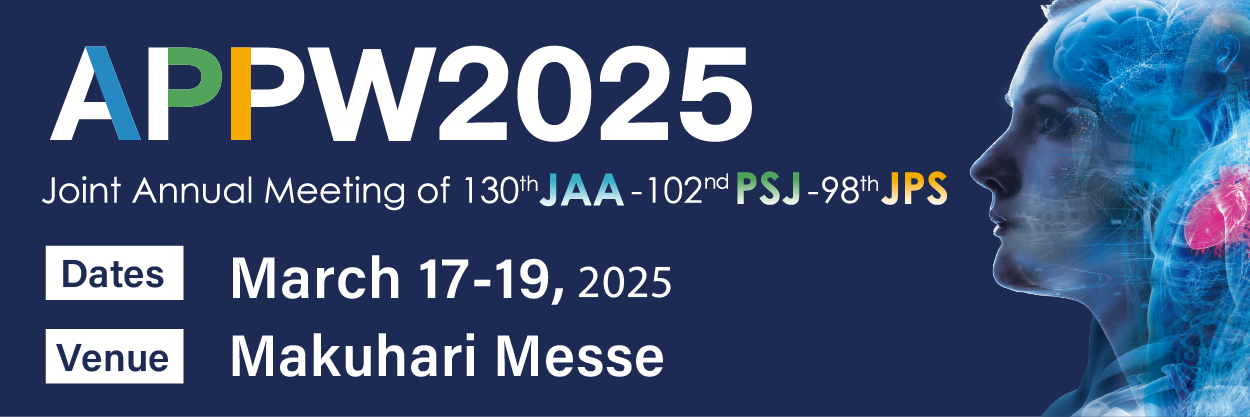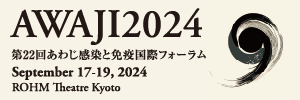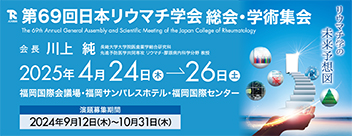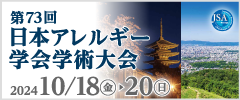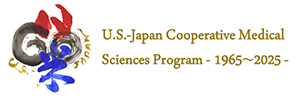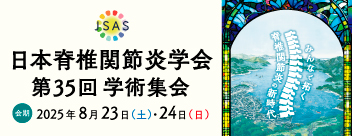It is our great pleasure to welcome you all as the President of the 53rd Annual Meeting of the Japanese Society for Immunology. This meeting will be held at the Nagasaki Dejima Messe, an international conference center newly opened in 2021, which is directly connected to JR Nagasaki Station. As you may know, Dejima in Nagasaki was once the only gateway to Japan for the rest of the world in Edo era, and an important base for absorbing foreign culture and knowledge. We believe that holding the conference at a venue bearing the name of Dejima is iconic and appropriate for the annual meeting of the Japanese Society for Immunology, which is promoting internationalization.
SARS-CoV-2 pandemic that raged around the world is now under control, and people are passing through the streets as if they have already forgotten about its existence. However, we immunologists must not relegate this experience to the past, and prepare for the next unknown pandemic. As a result of the simultaneous worldwide SARS-CoV-2 vaccination, large-scale data collection became possible in a relatively short period of time, which revealed that there were large individual differences in the efficacy and adverse reactions of the vaccine. The word "immunity" and the concept of immunization became widely known to the public.
The Japanese Society for Immunology, founded in 1971, is one of the leading medical societies in Japan. It celebrated the 50th anniversary in 2021. During this period, immunological research around the world has made remarkable progress with the advance in molecular biological methodologies, genetically modified animal technology, and comprehensive genetic analysis technology, leading to many new discoveries in the field of medical biology. In this context, immunological research in Japan has consistently played a leading role, particularly in cytokine research, and this is recognized around the world. In 2005, the Japanese Society for Immunology was reborn as a non-profit organization from a voluntary association, and has been even more active in its activities. It is currently one of the leading societies in Japan with more than 3,600 members, and promotes a wide variety of activities including academic meetings, publication of the international journal International Immunology, training sessions for students and young researchers (Immunology Summer School), and educational activities for the general public (Immunology for the Future). In August 2010, the triennial International Congress of Immunology was held in Kobe under the leadership of President Kishimoto, attracting nearly 6,000 researchers from around the world and fulfilling its role as a world leader in immunology research.
Japan is now entering a super-aging society, the likes of which the human race has never experienced before. In this context, we are facing a number of diseases such as cancer, the leading cause of death; infectious diseases, which WHO predicts will overtake cancer as the world's leading cause of death by 2050; chronic inflammation, which is a cause of diabetes and cardiovascular diseases; and allergic diseases affecting about one-third of the population in Japan. The importance of immunological study is thus indisputable. Furthermore, it has become clear in recent years that environmental factors such as the intestinal microbiota play a major role in immune regulation and disease pathogenesis. Biomedical research has shifted from hypothesis-testing research to data-driven research based on mathematical and systems biology that can handle big data and metadata, such as various omics data including single cell analysis and complex microbial metagenomic data. However, as the differences between model organisms and humans, as well as individual differences in the effects and adverse reactions of SARS-CoV-2 vaccination and anticancer drugs as described above, are becoming clear, the importance of human immunology is being brought into focus. Therefore, future immunology should aim at integrated, data-driven research by integrating data from humans and model organisms, to clarify the relationship between the immune system and other systems (nervous system, endocrine system, digestive system, etc.), including immune aging based on time series data, and environmental factors represented by intestinal microbiome.
The 53rd Annual Meeting will be held jointly with the Japanese Society for Mucosal Immunology (JSMI) (December 5-6) under the theme "From Fusion with Clinical Practice to Push Immunology to a Next Step.” We hope that this joint meeting with JSMI, where many clinical researchers gather, will deepen the discussion toward human immunology. The 47th Annual Meeting (2018) was in part jointly held with JSMI, but this time we have decided to go one step further and allow all participants to attend all the sessions of both meetings (December 3-6), regardless of which meeting they have registered for. Another important goal is to enhance the Clinical Seminars.
From the viewpoint of internationalization, in addition to the existing collaboration with immunological societies in Germany, Korea, Australia-New Zealand, and France, we are also planning joint symposia with an international organization, Society for Mucosal Immunology. We look forward to seeing you at the 53rd Annual Meeting of the Japanese Society for Immunology.
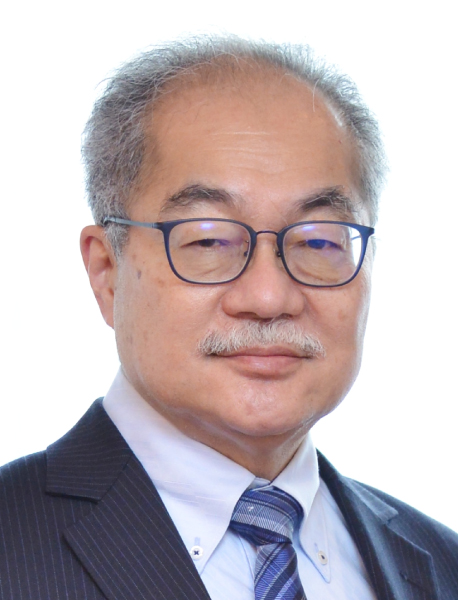
Hiroshi Ohno
President, the 53rd Annual Meeting of the Japanese Society for Immunology
(Deputy Director, RIKEN Center for Integrative Medical Sciences)

